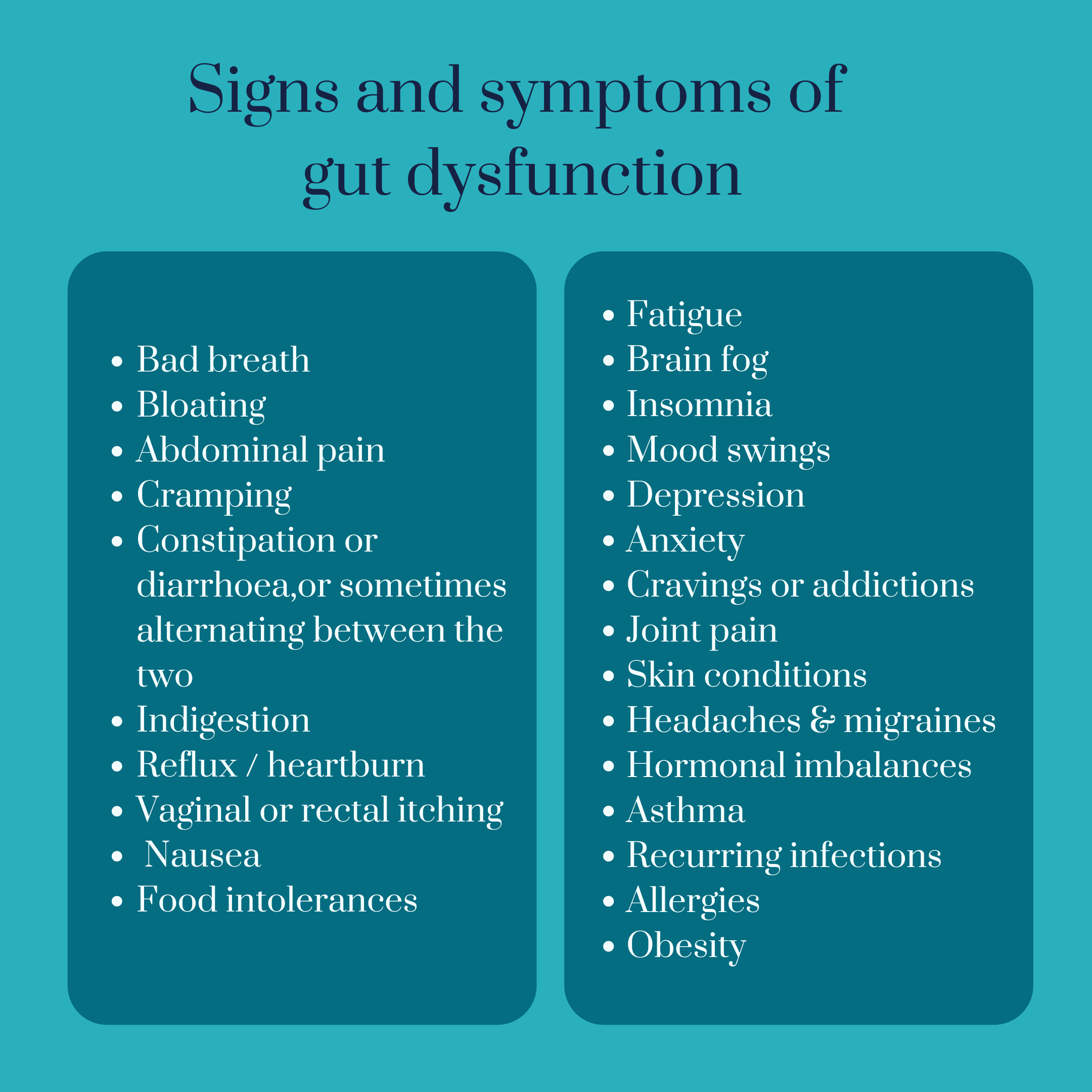Gut feelings
More often than not, by the time we reach middle age our guts are in less than perfect working order. I mean, who hasn’t, either now or in the past, suffered from at least one of the signs and symptoms of gut dysfunction?
Symptoms of gut dysfunction range from the obvious like bloating, diarrhoea, constipation, a combination of diarrhoea and constipation, indigestion, nausea, and excess wind to the not-so-obvious - hormonal imbalances, fatigue, cravings, depression, anxiety, skin conditions, headaches, allergies, recurring infections and obesity can all be indications that your gut needs support.
While you may be tempted to throw some antacids, laxatives, anti-diarrhoea medications or probiotics at your gut symptoms, it’s important to understand what’s driving the dysfunction in the first place.
Unless you deal with the root cause, quick fixes are generally temporary. And quite often these quick fixes bring their own set of complications, especially in the instance of antacids, laxatives and anti-diarrhoea medications.
So, what could be driving your gut dysfunction? A common root cause of gut dysfunction is stress. This will be compounded by toxins like alcohol (alcohol is very damaging, even in moderate amounts) and cigarettes, as well as sugar which you may be using to try to relieve your stress.
By now, most people are aware that antibiotics damage gut health, but so do other medications like birth control, antacids (ironic, really), and non-steroidal anti-inflammatories like Aspirin and Ibuprofen.
The typical Western diet that's high in sugar, refined carbs, processed foods, artificial flavourings and sweeteners creates havoc in the gut. Consider too the impact of overly sanitised environments- who knows what all the use of hand sanitisers is doing to our microbiomes?
How well we chew our food, how well we sleep, our exposure to fresh air and nature, how we exercise and move all have an impact on our gut.
To gain insight into what may be affecting your gut health, here are some questions to ask yourself:
What kind of stress have you experienced / are you experiencing? This may include early childhood adversity and trauma, chronic pain, emotional repression, anxiety, excessive exercise, relationships, job, commute – the list is endless. Currently we are all living through an extremely stressful period – please don’t underestimate the effect this may be having on your physical health.
What’s your diet like? How often do you eat bread, white pasta, cakes, biscuits, confectionery and any other refined foods in a week?
Roughly how many teaspoons of sugar do you have in a day?
How often do you have artificial sweeteners?
What’s your alcohol consumption like?
When and how often you have had antibiotics, painkillers, antacids, hormone contraception, anti-depressants and other medications?
How toxic is your environment? Conversely, how sanitised is your environment?
Good gut health is paramount – it influences everything from your weight, to your mood, to your cognitive ability. It can be a driver for your recurring infections or your joint pains or your eczema, or at the root of your low moods or anxiety.
Sometimes just a few small changes will make a massive difference to your gut health, but sometimes it takes a bit of investigative work so it may take longer to experience improvements, and in these cases functional testing can be extremly useful.
Arrange a taster session below to talk about how to support your gut health.

